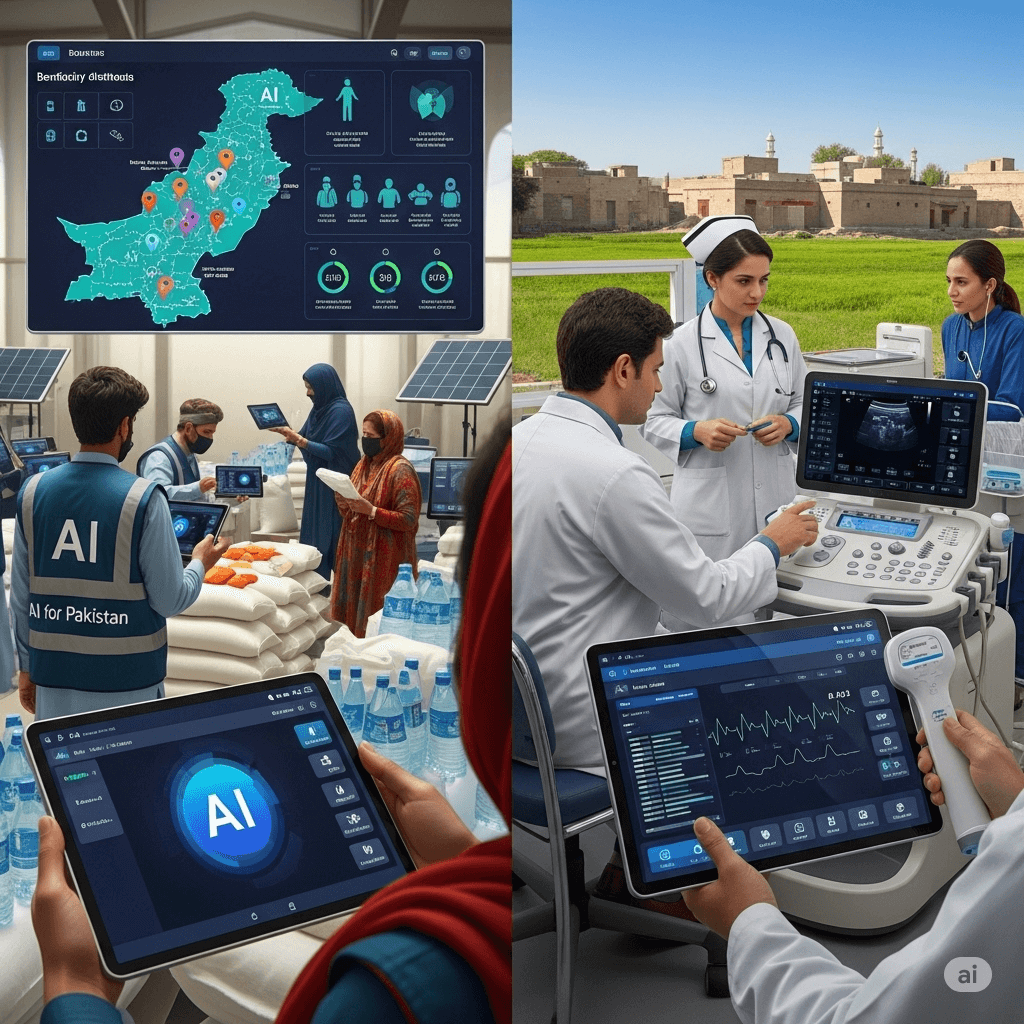Pakistan faces immense human welfare challenges, from providing healthcare to millions in remote areas to managing relief efforts during natural disasters like the devastating recent floods. While resources are often limited, the strategic application of Artificial Intelligence offers a powerful new way to deliver aid and support with unprecedented efficiency and compassion.
Extending Healthcare's Reach
In healthcare, AI can be a force multiplier. In a country with a low doctor-to-patient ratio, AI-powered diagnostic tools can be deployed in basic health units (BHUs) to screen for diseases like tuberculosis, diabetic retinopathy, and certain cancers. A health worker in a remote village in Balochistan could use a smartphone app to capture a medical image, which an AI model analyzes in seconds, flagging high-risk cases for a specialist’s review hundreds of miles away. This technology doesn't replace doctors; it extends their reach to the most vulnerable.
Smarter Disaster Management
Disaster management is another critical area. Using satellite imagery and meteorological data, AI models can predict flood paths with greater accuracy, giving authorities precious time to evacuate populations and pre-position resources. During a crisis, AI can analyze data from the field to identify the most affected areas, ensuring that aid from organizations like the NDMA is distributed equitably and efficiently, reaching those who need it most.
Furthermore, AI can enhance the transparency and effectiveness of social support systems like the Benazir Income Support Programme (BISP). By analyzing socioeconomic data, AI can help identify and verify eligible beneficiaries more accurately, reducing fraud and ensuring that financial aid is directed towards the families who truly qualify. By embracing "compassionate code," we can build a more resilient and equitable welfare state, ensuring that technology serves humanity where it is needed most.
